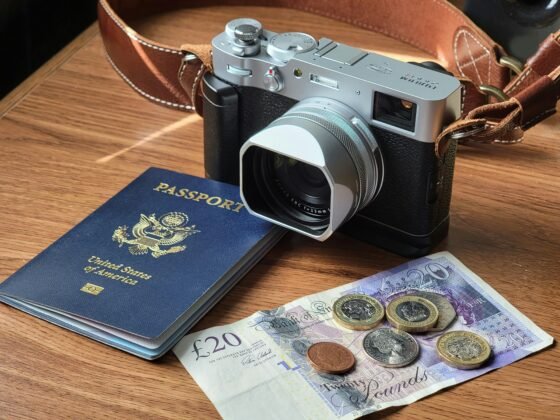
Traveling is amazing and something that everyone should experience. However, it can also be really tough on your body, especially if you’re not used to flying or traveling long distances. Traveling more than a few time zones can lead to jet lag, and being in close quarters with a lot of people can lead to getting sick. Fortunately, there are some things you can do to try and prevent both of these issues. Here are four tips to help you stay healthy and fight off jet lag and sickness while you’re on the move.
Drink lots of water
This one seems like a no-brainer, but it’s important to keep your body hydrated when you’re traveling, especially if you’re going to be sitting on a plane for hours at a time. Bring an empty water bottle with you through security so you can fill it up once you’re through and drink regularly throughout your flight.
The amount of water the average person should drink per day can be surprising, but it has many health benefits. The Mayo Clinic recommends men consume at least 3.7 liters (about 125 ounces) of fluids each day. They advise women to consume at least 2.7 liters (about 90 ounces) of fluids a day. So, make sure you’re getting enough water each day to stay hydrated and healthy.
Our body is composed of 60% water, which is essential for all bodily functions. Drinking water regularly helps improve our metabolism, flush out toxins from our bodies, and maintain a healthy weight. Staying hydrated can keep you healthy on those losing travel days.
Get up and move around as much as possible
Again, this is easier said than done if you’re crammed into a tiny airplane seat, but it’s important to try to get your blood moving every few hours to keep from getting too stiff and sore. Take a walk up and down the aisle every couple of hours, or do some simple stretches in your seat.
Moving regularly while traveling will also help you avoid deep vein thrombosis (DVT), a potentially dangerous condition that can occur when you sit still for long periods. To help prevent DVT, make sure to move your legs and feet often while you’re sitting, and get up and walk around as much as possible.
Tight clothing can restrict blood flow, which can lead to swelling and discomfort, so make sure to wear loose, comfortable clothing when you’re traveling. Natural fabrics like cotton and linen are best since they breathe well and won’t make you too hot or uncomfortable.
Eat light but often
It’s tempting to indulge in all the junk food available at airport terminals, but resist the temptation. Eating unhealthy food will only make you feel worse, so stick to lighter fare like fruits and vegetables, yogurt, whole grain bread, etc. And make sure to eat something every few hours, so you don’t get too hungry.
Eating small portions often will help keep your energy up and avoid bloating, which can be especially uncomfortable when you’re sitting on a plane. If you must eat something heavier, opt for lean protein and complex carbs, which will be easier on your stomach. And, of course, drink lots of water with your meals to stay hydrated.
A dietary supplement can also help you when traveling. Carrying a few vitamin gummies in your pocket will do wonders for giving you a boost of essential nutrients to fight off sickness. Avoid gummies that contain high fructose corn syrup and artificial flavors. Look for a quality brand with high average customer ratings. Vitamin C, vitamin B12, and elderberry are a great start. Vitamin C gummies are a great aid for immune health, while B-12 gummies can help with energy levels, and elderberry gummies will support your immune system.
Adjust to the new time zone gradually
One of the worst things about traveling is the jet lag that comes along with it. To help combat this, start adjusting to the new time zone a few days before your trip by gradually changing your sleep schedule. Then, once you arrive at your destination, try to stay awake until a reasonable bedtime so you can avoid feeling exhausted all day long.
The average person needs eight hours of sleep per night, but you may need more or less depending on your individual sleep needs. If you find yourself feeling groggy during the day, take a 20-30 minute nap to help reenergize yourself. Just be careful not to nap for too long, or you’ll have trouble falling asleep at night. The goal is to get your body used to the time zone you will be staying in as soon as possible.
Your body needs time to adjust to the new time zone, so be patient and give yourself a few days to get used to the new schedule. In the meantime, try to stay well-rested and drink plenty of fluids to help your body recover from the time change.
In Conclusion
Traveling can be tough on your body, but there are ways to prevent jet lag and sickness while you’re on the road. Drink lots of water, eat healthy foods, including dietary supplements, get up and move around every few hours, and adjust to the new time zone gradually by changing your sleep schedule before your trip. By following these tips, you’ll be feeling great in no time.











